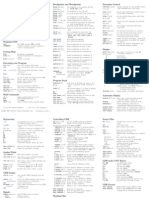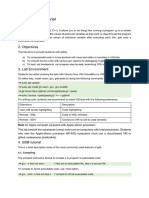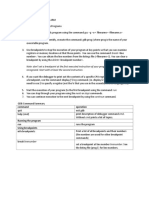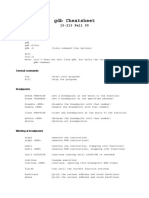0% found this document useful (0 votes)
74 views34 pagesIntro Binary Exploitation
This document discusses binary exploitation and assembly language. It covers basic assembly instructions and concepts like registers, data movement instructions, arithmetic instructions, and control flow instructions. It also discusses tools for binary analysis like file, strings, objdump, and the GNU debugger GDB.
Uploaded by
Taha MarweniCopyright
© © All Rights Reserved
We take content rights seriously. If you suspect this is your content, claim it here.
Available Formats
Download as PDF, TXT or read online on Scribd
0% found this document useful (0 votes)
74 views34 pagesIntro Binary Exploitation
This document discusses binary exploitation and assembly language. It covers basic assembly instructions and concepts like registers, data movement instructions, arithmetic instructions, and control flow instructions. It also discusses tools for binary analysis like file, strings, objdump, and the GNU debugger GDB.
Uploaded by
Taha MarweniCopyright
© © All Rights Reserved
We take content rights seriously. If you suspect this is your content, claim it here.
Available Formats
Download as PDF, TXT or read online on Scribd
/ 34











































